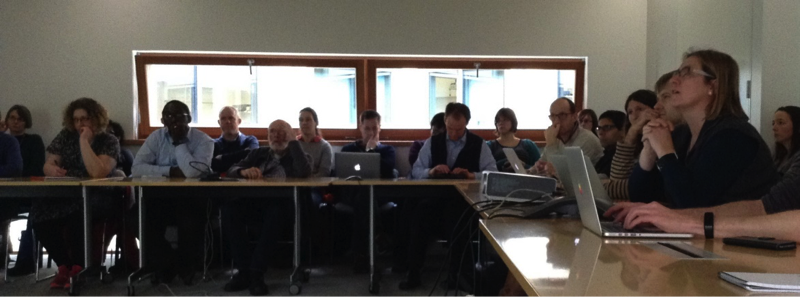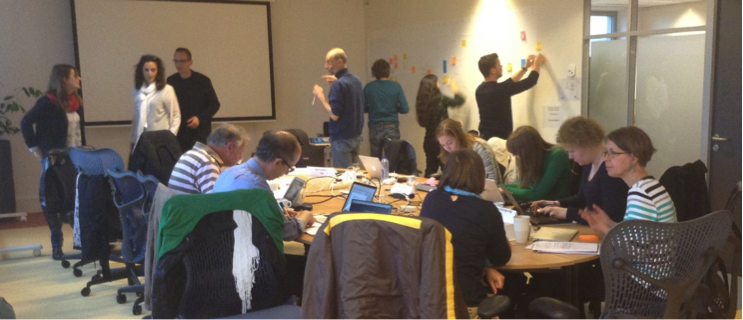“The technology is there, it’s the people who need to adapt”
“A digital research infrastructure consists of technical and social engineering, the social part is harder to change”
These are the sort of remarks you often hear when attending a workshop or conference where data infrastructure providers and data scientists are interacting with researchers, publishers, funders, and other stakeholders. Everybody agrees that “a cultural change is needed” to establish a fully interoperable, digital research infrastructure system which is beneficial for all stakeholders and will help advance science and innovation.
The EC-funded project THOR – Technical and Human infrastructure for Open Research – has been working towards this change for the past year. The 30-month project started in June 2015 and is building capacity by providing training materials and organising workshops on implementing and using persistent identifiers (PIDs) such as ORCiD iDs and DOIs. THOR’s project partners ORCID and DataCite are the data infrastructure providers in a total of 10 project partners. During the workshops THOR has organised over the past year, participants have learned how to integrate PIDs within their research systems. At the workshop held at project partner EBI, for example, participants learnt how to search in Europe PMC using an ORCID iD, and how to submit data via submission forms and automatically link the data to their ORCID iD. Another successful workshop was held at Force16; it focused on organisation iDs and attracted an engaged audience. The discussions on organisation iDs and other PIDs will continue at PIDapalooza, jointly organized by THOR partners DataCite and ORCID, and with Crossref, another partner in building an open PID infrastructure, and California Digital Library (more on this soon!).

Jo McEntyre (Head of Literature Services, EMBL-EBI, on the right) leading discussions on the use of persistent identifiers
Of course project THOR is not the only EC-funded project building capacity to increase the knowledge and use of available technical infrastructures. That is why the project, in partnership with AARC and OpenAIRE, organised a meeting for all EU H2020 funded projects to discuss their communication, outreach, and training plans. Fifteen projects and organisations were represented and the discussion resulted in a shared calendar for collaborated event planning to optimise the training opportunities and their impact. The projects will reconvene at the Digital Infrastructures for Research Conference in Krakow to discuss more collaboration opportunities.

Photo: Project representatives adding their workshops, webinars and events to the events timeline
During its first year, Project THOR has also developed a number of tools and documents to further increase and improve the interoperability of PIDs. A dashboard has been developed to monitor the uptake of PIDs. It is publicly available, which will also contribute to building community engagement around PIDs. In addition, the THOR Knowledge Hub has been launched, containing case studies, how-to guides, checklists, high-level reports, and useful links to other project and external resources. All THOR project partners will continue to update this with new research findings and useful information.
The THOR partners have identified further research opportunities that will be explored and addressed in the coming year. There are, for example, challenges in long-term preservation and archiving of digital data across a wide range of disciplines. A need to implement improved and structured data publishing workflows has been identified as well. During the upcoming THOR workshop on Identifiers – Infrastructure, Impact and Innovation in Amsterdam on July 7, this issue will be discussed by speakers from DataCite, PLOS, Elsevier Labs, and F1000. It will be an interactive session and spaces are still available, so this is your chance to contribute to the social and technical engineering components of the research infrastructure!
As you can see, THOR has made good progress this past year towards building the human infrastructure around PIDs, and we will continue to improve PID interoperability and organise events to tell you about it! Keep an eye on our website or join us in Amsterdam!
